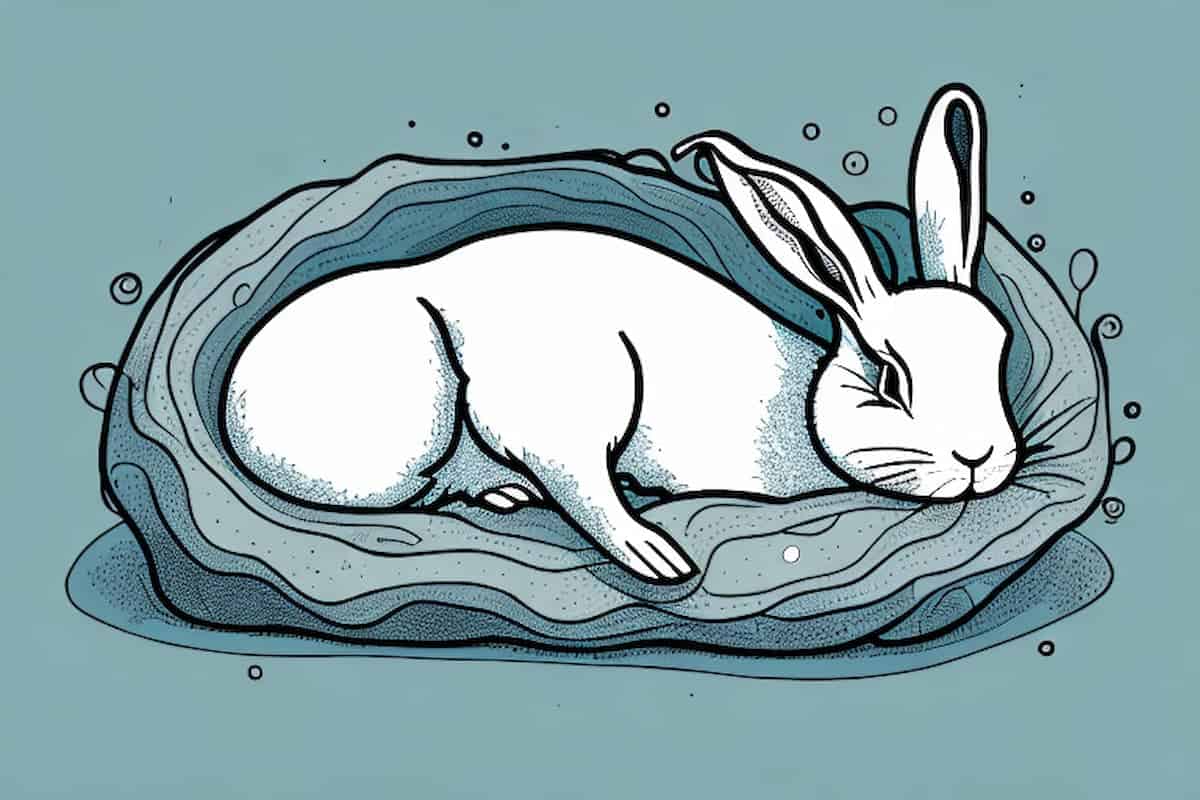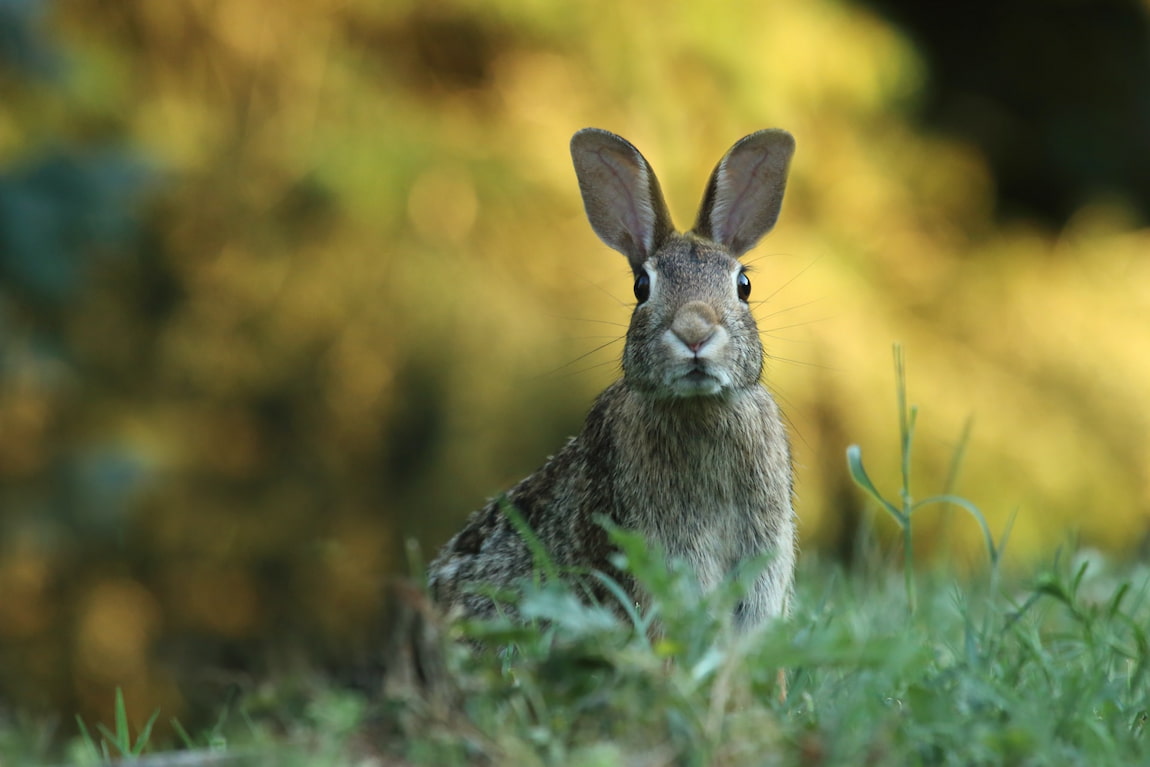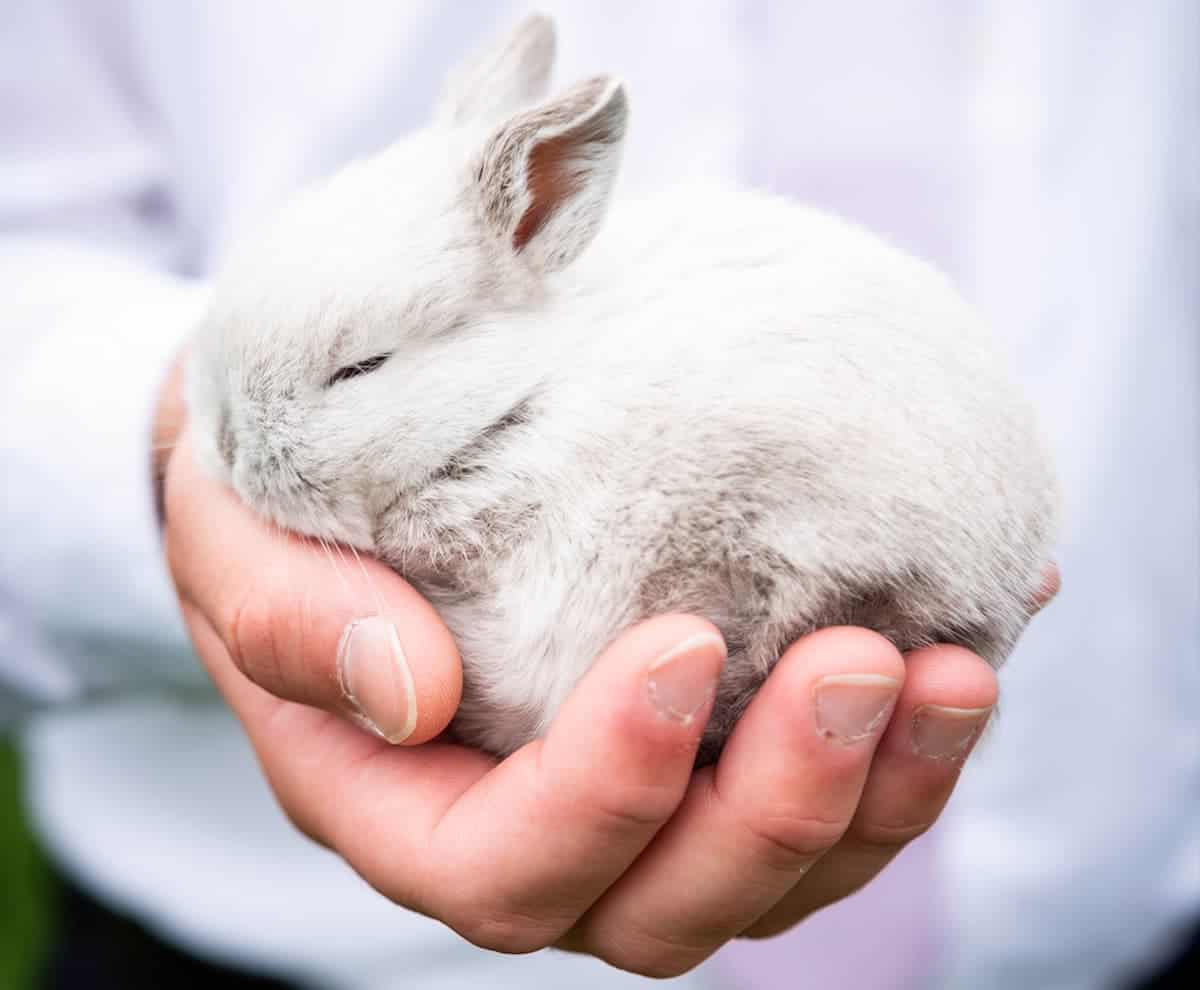Rabbits, like all living creatures, sleep in order to gain rest and regeneration, but what exactly do we know about the sleep habits of these furry little animals? This article dives into the fascinating world of rabbit sleep, exploring the patterns, needs, and benefits of a full night of rest.
Rabbit Sleeping Patterns
Rabbits are usually awake during the morning and night hours, while they sleep during daylight hours. This instinctive behavior is known as “crepuscular” activity, referring to a species’ naturally preferred times of activity. While some rabbits may be awake during the daytime, others may sleep for longer periods of up to 10 hours during this period and may be particularly active during the twilight hours. This behavior likely reflects the natural sleep pattern of rabbits in their native environment, as dusk and dawn offer them greater protection against their main predator: a nighttime hunter.
Rabbits are also known to take short naps throughout the day, usually lasting no more than a few minutes. These naps are usually taken in a safe, secure area, such as a burrow or nest. During these naps, rabbits are still alert and can quickly wake up if they sense danger. This behavior is beneficial for rabbits, as it allows them to rest while still being able to respond quickly to potential threats.
How Much Sleep Do Rabbits Need?
It’s important to recognize that the amount of sleep a rabbit needs can vary depending on their age, diet, and general health. Generally speaking, an adult rabbit requires around eight to twelve hours of sleep a day, while juvenile rabbits tend to need more rest. Additionally, wild rabbits usually require more sleep than rabbits kept indoors as pets.
It is important to provide your pet rabbit with a comfortable and safe sleeping environment. This should include a soft bedding material, such as hay or straw, and a warm, quiet area away from any potential predators. Additionally, rabbits should be provided with plenty of exercise during the day to ensure they are getting the rest they need at night.
The Link Between Diet and Rabbit Sleep
A rabbit’s diet can also have an impact on their ability to sleep soundly. For example, an unhealthy diet consisting of an excessive amount of carbohydrates can lead to erratic sleep patterns and disturbed sleep. This occurs because excess carbohydrates can cause the rabbit’s body to produce too much glucose which leads to elevated energy levels, making it difficult for them to relax and get to sleep.
In addition, a diet that is too low in fiber can also lead to sleep disturbances. Fiber helps to regulate the rabbit’s digestive system, and if they are not getting enough of it, they may experience digestive issues that can lead to restlessness and difficulty sleeping.
Rabbit Sleeping Positions
Rabbits typically take on a stretched-out position when sleeping, though they also curl upand make use of their heavily furred hind legs for extra warmth. It’s also common for rabbits to dig burrows in their enclosure and sleep inside them. This behavior provides an added layer of protection from predators, reflecting the rabbit’s instinctive need for safety.
Rabbits also tend to sleep in the same spot each night, usually in a corner of their enclosure. This is likely due to the fact that rabbits are creatures of habit and prefer to stick to a routine. Additionally, sleeping in the same spot each night helps rabbits to feel safe and secure in their environment.
Signs of a Sleepy Rabbit
It can be difficult to tell when a rabbit is ready for bed, however there are some key signs that can indicate when they are in need of sleep. Often, rabbits become slower and less energetic as they become tired. Additionally, they may groom themselves or start making a clicking noise with their tongues. These are all tell-tale signs to look out for when you suspect your rabbit needs to rest.
In addition to the physical signs of tiredness, rabbits may also display behavioral changes when they are ready for sleep. They may become more withdrawn and less interested in playing or interacting with their environment. They may also start to hide in their hutch or burrow, or become more vocal in their attempts to find a comfortable spot to rest.
The Benefits of a Good Night’s Sleep for Rabbits
Adequate rest is essential for the health and wellbeing of a rabbit. With enough sleep, rabbits are more active and energetic during waking hours and able to cope better with illness or environmental changes. Proper sleep also means stronger bones and muscles, improved fertility, a stronger immune system and a lower risk of behavioural problems.
How to Create a Comfortable Environment for Rabbits to Sleep
If you want to keep your rabbit comfortable at night, there are several things you can do to create an ideal environment for sleep. In order to ensure your rabbit gets enough restful sleep, make sure their space is quiet and well ventilated. Additionally, place plenty of hay or shredded paper in their enclosure for them to create burrows or tunnels while they sleep.
Impact of Noise Levels on Rabbit Sleep
Noise is a huge factor in determining how well your rabbit sleeps. Rabbits are extremely sensitive to loud noises, so try to keep any potential noise sources away from your rabbit’s area if possible. This could include making sure loud music cameras are not nearby and that any visitors you have are aware of the need for quietness around the bunny.
Common Myths About Rabbit Sleeping Habits
Despite our best efforts to understand wild animals’ behaviors, there are still some myths about rabbit sleep habits out there. For instance, some people believe that rabbits start snoring when they’re sleeping, but this is not actually true. Rabbits also don’t sleep with their eyes open, nor do they hibernate during winter months.
Now that you know more about do bunnies sleep and their sleeping habits, you will be better able to understand and take care of your rabbit’s needs. With proper care and understanding, your furry friend can get all the restful sleep it needs.





